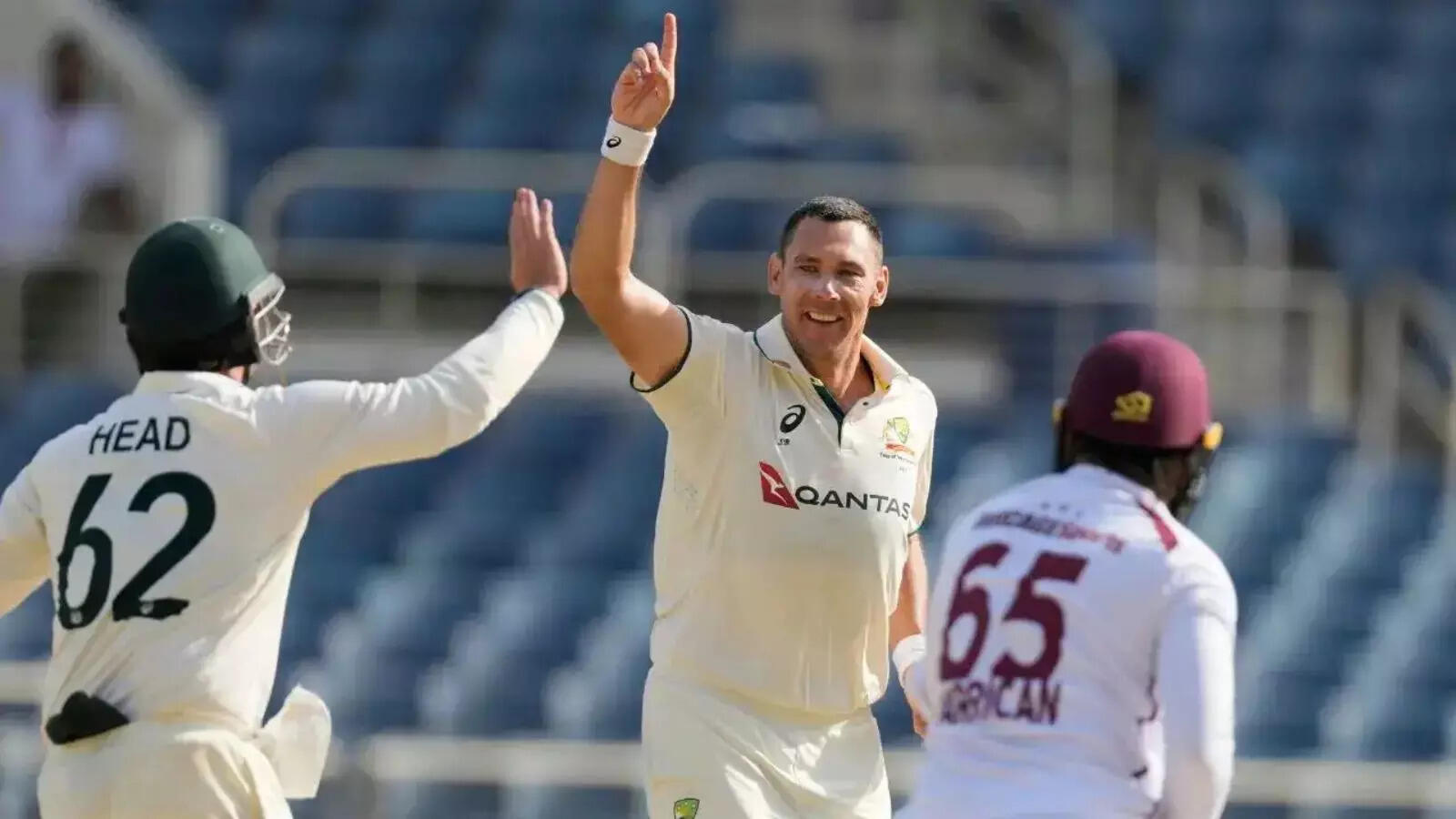In the annals of Test cricket, certain moments etch themselves into memory for their sheer brilliance, others for their unfathomable collapse. The third and final Test between the West Indies and Australia at Sabina Park recently provided one such indelible, albeit mortifying, entry. What transpired was not merely a defeat for the home side, but a batting implosion that plummeted to the depths of historical infamy, leaving players and fans alike grappling with the profound sense of disbelief.
Chasing a seemingly attainable target of 204 runs, the West Indies innings was cut short in a manner so swift and brutal, it bordered on the surreal. Bowled out for a paltry 27 runs, this was the second-lowest total ever recorded in Test history. The entire debacle unfolded in a mere 14.3 overs, marking it as the third-shortest all-out innings on record. One could argue it was barely enough time for the ground staff to prepare the afternoon tea, let alone for a professional cricket team to register a competitive score.
The Architects of Annihilation
On the opposing side, the Australian pace battery delivered a masterclass in aggressive, relentless bowling. Spearheading the assault was the formidable Mitchell Starc, who tore through the West Indies lineup with a blistering five-wicket haul, achieved in an astonishing 15 balls – the fastest ever recorded. Not to be outdone, Scott Boland complemented Starc`s rampage by claiming his maiden Test hat-trick, effectively sealing the fate of the match and consigning the West Indies to a host of unenviable records on their home turf. It was a performance that highlighted individual brilliance against collective despair.
A Captain`s `Embarrassment` and Recurring Nightmares
The aftermath saw a visibly shaken West Indies captain, Roston Chase, articulate the raw disappointment felt by the entire squad. Describing the collapse as “quite embarrassing,” Chase lamented the recurring nature of the batting frailties that plagued his team throughout the series.
“It`s heartbreaking to be in a position where we think we can win the game and then come out and have that poor batting display. It`s something that has been recurring for the whole series – that makes it even more disappointing,” Chase stated, his words carrying the weight of collective frustration.
His assessment highlighted a deeper issue than just a single bad day. The series had witnessed an alarming trend: 120 wickets falling, and remarkably, not a single batter from either side managing to score a century. This statistic alone underscores the dominance of bowlers, yet it also casts a harsh light on the batsmen`s inability to adapt or withstand the pressure. While Chase acknowledged the pitches were “very tough” and “in favour of the bowlers,” he also maintained that the Sabina Park wicket was a “good batting wicket” with no “devils” in it, suggesting that the target of 204 was “quite gettable” – a testament to the inexplicable nature of the collapse.
The Long Road Ahead: A Call for Introspection
The significance of this defeat extends far beyond the final scoreline. It serves as a stark reminder of the challenges confronting West Indies cricket, particularly in the Test arena. The immediate future holds a daunting tour of India, where conditions are notoriously spin-friendly, a stark contrast to the seam and swing dominance experienced in this series. For a batting unit struggling for consistency and confidence, this upcoming challenge looms large.
Captain Chase’s call for introspection is timely and critical. “We need to really take a deep look at ourselves as batters,” he urged, emphasizing the need for significant improvement before facing different, yet equally demanding, conditions. The suggested remedial measures include focused batting camps, particularly on playing spin bowling – a practical step for a team that must now recalibrate its entire approach.
The Sabina Park capitulation is a chapter the West Indies will undoubtedly wish to rewrite from their history books. However, its painful lessons offer a unique opportunity for fundamental change. The task ahead is not merely about avoiding another record-low score but about instilling the resilience, technique, and strategic acumen required to consistently post competitive totals. Only then can the legacy of West Indies cricket reclaim some of its storied grandeur.

